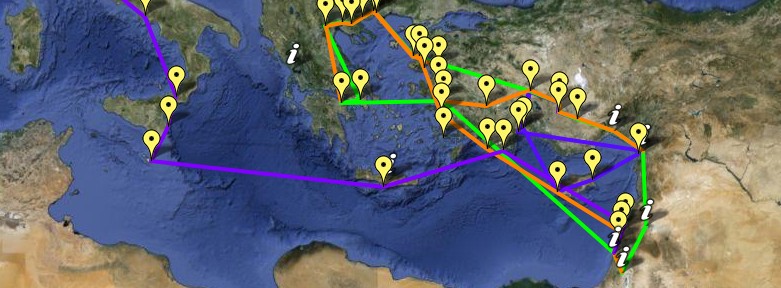As atheists grow bolder in the absence of such boldness from christian leaders in the Western world, we have begun to find new terms to describe this group. Typically, we call them the “New Atheists” – ones who do not simply lack belief in God, but actively assert that God does not exist and “evangelize” their worldview. Now, I have found a better word proposed by Robin Schumacher, a blogger for the Christian Post. He proposes the term “Hatetheist” to describe those who cannot help but espouse their hatred (not just disagreement) with theism, especially of the Christian variety.
Schumacher raises a number of points that resonate with me (and I suspect most who engage in any debates with atheists), such as:
…atheists keep Christians honest where our apologetics are concerned, and they are helpful in showcasing what the philosophy of naturalism espouses and where it logically leads. Although we disagree on theological matters, I’ve found atheists to be respectful, intelligent, and understanding in many of our discussions. They have thought through their positions, present them in a well-organized manner, and are happy to consider contrary positions and opposing arguments to their stance.
In contrast, he says, “discussing theology with hatetheists is an exercise in futility.” He lays out 8 points describing what sets the hatetheist apart from other atheists. Below is my attempt to boil down his comparisons for simplicity.
| Atheist |
Hatetheist |
| Respectful |
Name-caller |
| Uses names “God”, “Jesus” |
“Invisible sky fairy”, “Jewish zombie” |
| Recognizes intellectual equality |
Believe they have superior intellect |
| Considers and addresses arguments |
Uses red herrings, dodges questions |
| Recognizes limits of science |
Adheres to scientism |
| Universally critiques all gods |
Focuses on God of Christianity |
| Promotes freedom of religion |
Promotes freedom from religion |
| Does not see Christianity as a threat |
Fights against threat of Christianity |
These distinctions are important because they can help discern how best to respond or approach an unbeliever. While it may be a good idea to continually engage with an atheist for evangelism or other discussion, Schumacher warns against such continued interaction with hatetheists. He gives a number of scriptural examples for this conclusion, which is summed up with a quote from Richard Weaver’s book, Ideas Have Consequences:
“Nothing good can come if the will is wrong. And to give evidence to him who loves not the truth is to give him more plentiful material for misinterpretation.”
If you often engage with atheists online, I would strongly recommend reading his entire post. Do you agree that we should sometimes disengage with an unbeliever, or is it always advisable to keep the dialogue going?


